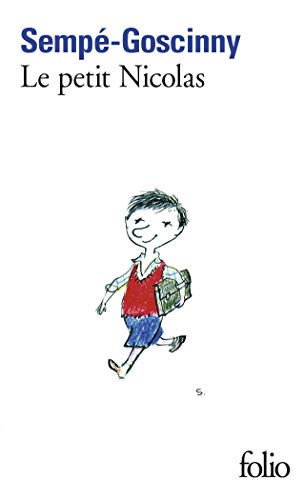
19 Resources for Reading in French
If you want to read a 300-word French novel, you’ll need to know the alphabet.
Okay, so you may be more advanced than that if you’re reading this.
But if you want to improve your prowess at reading in French, there are tons of resources designed to help, no matter what level you’re starting from.
We’ll show you 19 of the best, from easy French books to fun reading comprehension exercises, that’ll help you improve your French reading skills—without getting overwhelmed or lost in a difficult text.
Plus, learn 17 valuable tips you can follow if your goal is to get lost in a good book while greatly improving your French.
Contents
- 19 Resources for Reading in French
- “French Reading Practice for Absolute Beginners”
- “100 Most Common French Words in Context”
- “Super Easy French”
- Kindle Vocabulary Builder
- Linguee
- WordReference
- Duolingo Stories
- Beelinguapp
- The French Experiment
- The Fable Cottage
- Clozemaster
- Bilingual Reader Articles
- LanguageGuide.org
- French Texts for Beginners and Intermediates
- Easy French Practice
- 1jour1actu
- BookBox French
- “Déjà Vu” (a bilingual play)
- 17 Tips for Reading in French
- Choose Material Suitable for Your Level
- Build Your Vocabulary
- Use Books Designed for French Learners
- Read About Subjects That Interest You
- Surf the Internet in French
- Explore All Your Options
- Follow Along with Recordings
- Read out Loud
- Read Every Day
- Read the French News
- Read Books You Already Know
- Don’t Look Up Every Word You Don’t Know
- Aim to Understand the Gist, Not Grammar Details
- Make Notes as You Read
- Stay Relaxed and Avoid Frustration
- Regularly Review What You’ve Read
- Do Follow-up Activities After Finishing Each Book
- And one more thing...
Download: This blog post is available as a convenient and portable PDF that you can take anywhere. Click here to get a copy. (Download)
19 Resources for Reading in French
“French Reading Practice for Absolute Beginners”
This short YouTube playlist from Innovative Language drops you right into the world of practical French reading skills, with a special focus on train tickets.
These videos are more about learning French reading in an immersive setting than about learning whole language concepts. This means they contain some grammar that you might not run across until further into a beginner textbook, like the future tense. So while this playlist is meant for “absolute beginners,” it could also be useful for anyone hovering around the beginner level.
If you enjoy this practical learning, you can get a lot more from the same Innovative Language team at FrenchPod101 and the accompanying YouTube channel.
“100 Most Common French Words in Context”
This video delivers just what it claims—some of the most common words in French. The words are written in French along with a pronunciation and English translation. Then you get an example sentence that uses the word, also written out and spoken.
By building up a core of common French knowledge, you’ll be equipped to understand a large portion of written language you come across.
You’ll also be exposed to some grammar without explanation, this time in the form of the example sentences. The idea here is simply getting the vocabulary down. Learning it now will help you start reading more French texts sooner.
“Super Easy French”
The host of this longer playlist, Tony, takes viewers through a variety of different situations—from eating breakfast, to walking the streets of different cities, to making a quiche.
There’s even a video specifically focused on reading, which goes over some French-language books that may spark your interest.
Fortunately, bilingual subtitles make all the videos relevant to reading in French.
This is another playlist for “absolute beginners.” The speech is clear, slow and accompanied by helpful visuals. Be warned, though, if you really are an absolute beginner, these videos will begin to strain your comprehension abilities quickly. Therefore, it’s probably best to work your way through the list slowly.
Kindle Vocabulary Builder
If you have a Kindle Paperwhite, you can use the Vocabulary Builder feature to create flashcards from words you don’t know.
Once you’ve set up a French dictionary on your Kindle, you’ll be able to place your finger on any word for a quick definition.
You can then use the Vocabulary Builder to review the words you’ve looked up. If you already do a lot of reading on your Kindle, this is a really easy way to incorporate French reading into your routine.
But what should you read? If you’re tight on cash, there are plenty of low-cost e-books for French learners. Keep your wallet happy with these free and cheap Kindle books in French. There are also some good public domain texts you can download completely for free. Admittedly, most of these are beyond beginner level, but they’re free, so there’s no reason to not just go ahead and add them to your library now.
Linguee
Linguee is a resource you can use when your French dictionary lets you down. The program allows you to see how certain vocabulary is actually being used by real people. When you enter a word or a phrase and select your desired languages, you’re able to see side-by-side usages from written online material.
In the case of French-English translations, you’ll often be presented with snippets from matching French and English versions of Canadian websites. You have to take context into consideration, of course, but seeing multiple usages will help you do exactly that.
WordReference
Head to the WordReference forums to connect with other learners and native speakers who’ll probably not only answer all your more complicated questions that other resources can’t help you with. As a beginner, you’ll want to make use of the French/English vocabulary or grammar forum, depending on your question. Be sure to read all the forum guidelines before posting.
The French-English dictionary on WordReference (which can be accessed on the app) is also a great default place to look things up, whether you’re reading a physical book or online content.
Duolingo Stories
You may already be using or planning on using the popular language app Duolingo. But make sure to check out the Stories part of the website, which uses interactive “mini-stories” to teach you reading and listening. It works sort of like the regular Duolingo “tree,” as you can unlock higher levels the more you practice.
The first stories are pretty basic, so you can start using Duolingo Stories early on. You’ll begin with a story called “Good Morning!” and join characters Marion and Jean for a sleepy-headed cup of coffee. (Hilarity ensues.)
Beelinguapp
Beelinguapp allows you to practice reading through texts with audio and translations. The texts come in a variety of levels, ranging from translations of classics to material created for learners.
Beelinguapp highlights the text for you as the recording plays, so you can easily follow along. This is a solid, reliable resource for general reading practice and working on reading speed.
The French Experiment
The French Experiment is like a carefully curated multimedia library for early Frenchlearners.
The children’s stories on this website are a pleasure to experience. You can read them with or without audio. You can read them with continuous translations, translations you reveal when you’re ready or no translations at all.
Illustrations are interspersed throughout the text and the creators have begun to add video as well (check out the one for “Petit Poulet,” or “Chicken Little”).
The Fable Cottage
This site is from the same crew behind The French Experiment, with the same idea and a bit of overlap. The Fable Cottage brings more of a classic fairy tale focus your way.
Here, you’ll find stories such as “Cendrillon” (“Cinderella”), “Jack et les Haricots Magiques” (“Jack and the Magic Beanstalk”) and “Hansel et Gretel” (“Hansel and Gretel,” though you probably figured that one out).
Clozemaster
Don’t have time to focus on a whole article, or even a whole paragraph? Clozemaster will let you practice your reading through single sentences. This app is appropriate for anyone who already has a little French under their belt.
Clozemaster is basically a flashcard app that works with full sentences through fill-in-the-blank quizzes. It’ll help build your vocabulary and strengthen your reading comprehension at the same time.
Bilingual Reader Articles
Kwiziq gives you a collection of texts with accompanying audio recordings, including a French version of Charles Dickens’ “A Christmas Carol.” The texts are divided into levels. These will probably work best if you start with the A1 level once you already have a bit of French knowledge down.
The texts have a pretty intuitive “hover and click” feature that gives you phrase-by-phrase translations as you read.
LanguageGuide.org
This site includes a handful of readings for French beginners that are fully equipped with interactive translations, definitions and audio that can be stopped and started from any point. The readings are mercifully short, and a little more entertaining and edgy than you might expect.
To pique your curiosity, I’ll just say this: clowns and art fraud.
French Texts for Beginners and Intermediates
Sometimes you just want to practice your reading without any extra noise. That’s exactly what you can do here.
Lingua.com gives you texts created by professional French teachers for early beginners, upper-beginners and intermediates. It has a more basic approach than other sites, in that all you get is the text and a few questions. However, it’s well organized and easy to use.
Easy French Practice
“Easy” here doesn’t mean “beginner,” but these texts are a treat for beginners to enjoy and aspire to. They cover a variety of pleasant travel- and culture-based topics like baking bread, talking about wine and the gorgeous Montagne Sainte-Victoire.
Each text comes with English translations that you can hit a button to hide or reveal. This makes them accessible to all learners. Even if you can’t follow the French immediately, there’s absolutely nothing wrong with using these texts—and their accompanying beautiful pictures—to develop a taste for French landscapes and culture.
1jour1actu
Once you get a handle on your French reading and are ready to try flying without a parachute (i.e., translations), this is a good place to start. 1jour1actu is a French news publication for kids. Actu is short for actualité, or “news,” and you may already know that jour means “day.”
1jour1actu deals with regular news subjects—everything from sports to climate change and other political news—but in simple language. You’ll even find some entertaining videos under the “1jour1question” (1day1question) tab.
BookBox French
This good old standby is a staple for French learners. Like some of the other resources on this list, it can get more advanced pretty quickly, but it’s still accessible to beginners. French subtitles are included in the videos, and you have the option to add English subtitles if you need them.
BookBox is a useful resource for getting used to typical story formats in French—for example, seeing how different past tenses are used together.
“Déjà Vu” (a bilingual play)
Originally a BBC Radio 4/ARTE co-production, this bilingual series exploring a relationship between a British woman and a French Algerian man is available in text format on the BBC Languages website. The podcast link is no longer accessible, but you still get 24 scenes with color-coded French and English text, which is perfect for beginning reading practice.
Claire is a French learner, so she and Ahmed communicate in a mixture of the two languages, creating both a realistic and practical scenario for actual learners.
FluentU takes authentic videos—like music videos, movie trailers, news and inspiring talks—and turns them into personalized language learning lessons.
You can try FluentU for free for 2 weeks. Check out the website or download the iOS app or Android app.
P.S. Click here to take advantage of our current sale! (Expires at the end of this month.)
17 Tips for Reading in French
Choose Material Suitable for Your Level
If you start out too ambitious, you may end up frustrated and be tempted to quit. Don’t be afraid to try children’s books. The “Petit Nicolas” books by Sempé engage the kind of humor that appeals both to children and adults and is charmingly illustrated with Sempé’s famous signature cartoons.
Speaking of cartoons, there are also lots of comics for grownups available. The French are huge manga fans, and there are literally thousands of French-language comic strip books available for adults online or in bookshops.
There are also several classic works of fiction written in clear, straightforward language such as “L’Etranger” by Albert Camus. The poems of Jacques Prévert, studied by French school children from a young age, are another excellent choice for exploring the beauty of the French language at its simplest, most playful best.
For more advanced learners, the poems, plays and novels of Victor Hugo provide an overview of French history in classic, elegant language that makes him one of France’s most beloved authors.
Build Your Vocabulary
Keep a notebook and pencil or your favorite note-taking app ready next to you while you read. When you come across new words, try to work them out from the context. If you can’t, write them down to look them up later. Take an extra moment to write down the sentence that the word appeared in—many words have multiple meanings and the context will help you figure out later which meaning was being used.
Use Books Designed for French Learners
There’s a wealth of books available from publishers on both sides of the Atlantic that are specifically created for language learners. They provide extensive glossaries, pre-reading exercises and comprehension checklists. Some books have the text in French on one page and in English on the other, so you can compare words and sentences, or glance over at the English language when you get stuck.
To find a book like this, just search for French Readers on Amazon or your bookstore of choice.
Read About Subjects That Interest You
Many people who choose to learn French are interested in French culture in general. Therefore, it’s no coincidence that a huge selection of books in simplified French language is available for learners to explore French history, literature, art or philosophy. However, reading in French doesn’t necessarily mean that you have to read about France!
If the reign of Louis XIV doesn’t float your boat, be honest with yourself and admit it. Reading something in a foreign language that doesn’t truly grip your interest is going to be hard going. Choose a text about something close to your heart. Are you are a gardening aficionado? Pick up an illustrated book on gardening. Fancy yourself a talented chef? Choose a nice cookbook and start with an easy recipe.
Surf the Internet in French
Believe it or not, a large amount of reading happens every day without us even realizing it. Whether you’re scrolling your favorite social media website, using Google or checking your email inbox, these are golden opportunities to practice reading in French.
The easiest way to surf the internet in French is to change your language settings. This can be done by changing the interface language of your internet browser or your email inbox to French in the “Preferences” tab. You can also change social media websites such as Facebook, Twitter, Instagram and even YouTube to use French as the interface language.
Explore All Your Options
If you spend a lot of time driving or out walking the dog, audiobooks can be a great alternative. The skills that you will develop will vary from reading a traditional book—audiobooks certainly won’t help your spelling! However, if you can keep your concentration, it can be very useful in helping you advance to fluency.
E-books are also a great idea for language learners. They’re cheaply and easily available and many e-readers have bilingual dictionary capabilities, so you can look up a word quickly. As they hold many books, you can easily flick between your bestseller and your French grammar guide, helping you learn as you read. Don’t forget that you can also highlight and add notes to pages on most e-readers, so you can check things out later if you need to.
Follow Along with Recordings
Find recorded versions (available for the French classics and popular texts) of your book and listen as you follow the words in the book. Listen to the CD as you drive to work, then read the same passage later.
Audiobook services like Audible and Libro.fm offer pretty expansive selections of French audiobooks—or, if you’re on a budget, you can check out your local library’s offerings for free with an app like Overdrive.
Read out Loud
Combine honing your reading skills with improving pronunciation by reading out loud. Find someone who can listen to you and give helpful feedback. You could even record yourself and play it back while reading along.
Read Every Day
As with acquiring any new skill or talent, learning French takes discipline and practice. Set aside 15 minutes every day—in the morning when you first wake up, in bed before you go to sleep at night or, yes, during your daily commute (unless you are driving!) to read in French. Just make sure that you keep going! A little each day, and before long you’ll be a true mordure de lecture (bookworm).
Read the French News
Go online and read the news in French. There are many news websites available. The advantage of reading online is that you can copy and paste words you are struggling with into an online French-English dictionary.
Choose a news story you’re already familiar with. Scan the text quickly before reading and look up any words you don’t know. Then, go back and read the entire article.
Read Books You Already Know
Choose a favorite story that you know inside and out and read it in French. Already knowing the storyline will allow you to sit back and enjoy the French language used.
Don’t Look Up Every Word You Don’t Know
If you’re reaching for your dictionary every third word, it’s not going to be a fun reading session. To figure out the meaning of an unfamiliar word, look at the context that it appears in. Read the sentence and think of the kind of things that would fit. Try and guess, and pencil this in with a question mark next to the word. If you need to, look the word up at a later date.
If that same word crops up again while you’re reading, it’s probably best to look it up—if words are used again and again by authors, you might as well know them. If you don’t feel like dragging your dictionary around with you, try a French dictionary app.
Aim to Understand the Gist, Not Grammar Details
There’s no point trying to learn every grammar structure and tense that you come across while reading if you’re only at an intermediate stage. It’ll take forever and you’ll probably get confused.
If you can get a grasp of what is going on, that’s probably enough, but make a note of any passages you struggled with so that you can look at them later. Try to let a lot of things you’re unfamiliar with go; you won’t get many benefits from poring over each page with a grammar book. As long as you’ve got the gist, you’re on your way.
Make Notes as You Read
You might want to keep a pack of Post-its handy if you have little room to add in notes. Some good things to make notes of are:
- New grammar structures that you’ve studied before but want to refresh because you found them difficult.
- Idiomatic phrases you want to try out in real life.
- New words that you found the meanings of. As we mentioned earlier, make sure you also write down the sentence the word appears in for context when you’re looking back on it.
- General French culture points you want to note.
- Locations or places mentioned that you want to look up on a map.
You can then take these notes out in a study session and do each of the actions, perhaps noting what you learned in a notebook.
Stay Relaxed and Avoid Frustration
If you feel yourself getting frustrated or not getting the gist of a page, put your book down. This might happen a lot as you get started, but you’ll soon get reading in French to the point where you rarely have to do this. Go with how you’re feeling and if you start to feel bored or frustrated, switch what you’re doing and come back to it later. Take small bites!
Regularly Review What You’ve Read
To help you get the most out of reading, review your notes after every day of reading. This way you won’t overwhelm yourself weeks down the road with a pile of notes to go through. You’ll also have a better insight and understanding as you read on.
Try making flashcards out of vocabulary you’ve learned, so if it crops up again you’ll have the meaning on hand. Now is also the time to review that grammar you thought was weird—try and understand how it works so you can cruise through next time it crops up.
Do Follow-up Activities After Finishing Each Book
You’ll feel a great sense of accomplishment when you finish a novel in French—but don’t let the fun end there! Here are more ways to gain meaningful language practice using the same book:
- Watch the movie version. If your book has a movie version, it’s time to bust out the popcorn. Watching the movie of a book you’ve read can help you understand the setting and culture of the book you’ve read with more clarity.
- Write a book review. Writing a French review of the novel you’ve read will help you to practice a different style of writing. You’ll have more of a window to be creative with what you write—you could describe the cover and whether you liked it, write a character description and try to express your opinion in different ways.
Once you’ve written a stellar review, you could post it on Amazon or Goodreads, and you’ll be helping other learners choose a book they’ll treasure!
- Discuss the book with a native. You could ask a native about phrases that you found difficult, or when to use a certain phrase. You could even talk about parts of the culture you found unusual or bizarre. A French book club could also be a perfect way to discuss French literature with others. Look out for a group near you on Meetup or the French Alliance.
These suggestions should allow you to jumpstart your French language reading. Bonne lecture!
And one more thing...
If you like learning French on your own time and from the comfort of your smart device, then I'd be remiss to not tell you about FluentU.
FluentU has a wide variety of great content, like interviews, documentary excerpts and web series, as you can see here:

FluentU brings native French videos with reach. With interactive captions, you can tap on any word to see an image, definition and useful examples.

For example, if you tap on the word "crois," you'll see this:

Practice and reinforce all the vocabulary you've learned in a given video with learn mode. Swipe left or right to see more examples for the word you’re learning, and play the mini-games found in our dynamic flashcards, like "fill in the blank."

All throughout, FluentU tracks the vocabulary that you’re learning and uses this information to give you a totally personalized experience. It gives you extra practice with difficult words—and reminds you when it’s time to review what you’ve learned.
Start using the FluentU website on your computer or tablet or, better yet, download the FluentU app from the iTunes or Google Play store. Click here to take advantage of our current sale! (Expires at the end of this month.)

















